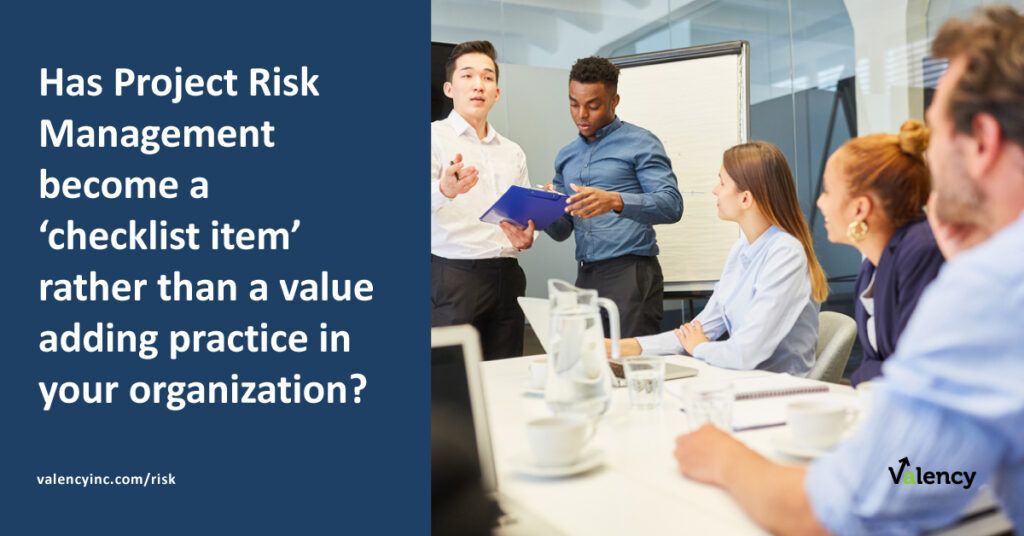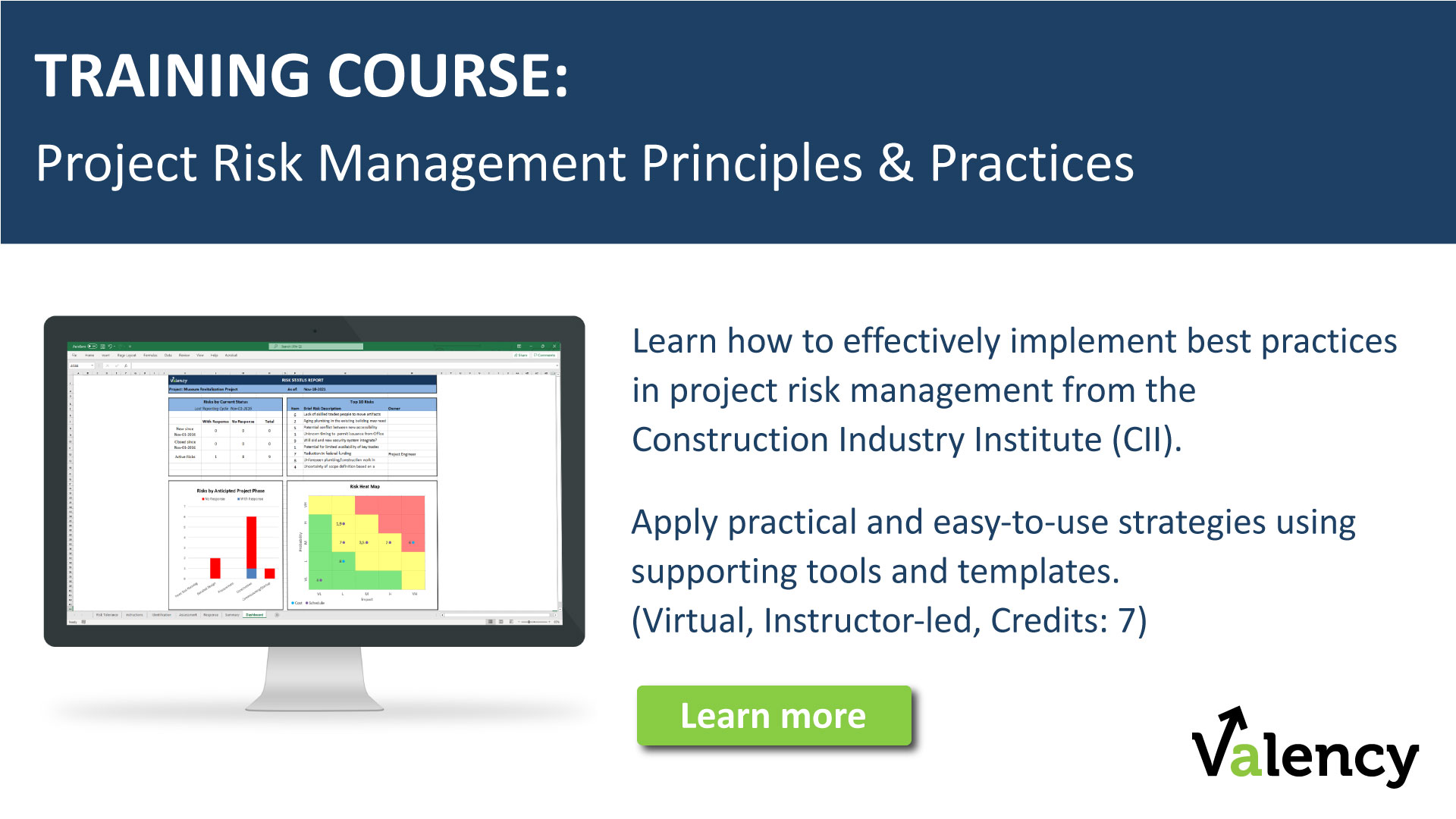Project Risk Management has become a standard practice for capital projects in many organizations, but one question to consider is:
“In our organization, has project risk management become a ‘checklist item’ rather than a value adding practice?”
When you consider the benefits that organizations with a formal risk management process can achieve, it’s critical to apply best practice methodology to gain the most from the efforts of the project team.
Risk workshops are the ‘secret sauce’ to gaining the most benefit from your risk management program. These workshop are also an excellent team alignment exercise.
To highlight just how important alignment is to capital projects, a Construction Industry Institute study completed in 2013 identified alignment as the #1 contributing factor to achieving predictable project performance. The study reinforced that team alignment must be continuously reinforced throughout the project lifecycle1.
Investing the time to execute a productive risk workshop is worth the time and effort to contribute to a predictable project outcome and to achieve buy-in for the practice itself.
Productive Risk Workshops
If you want to take your risk workshop from ‘just another meeting‘ to a productive, team building experience here are three points to get you started:
- Planning – ensuring the right people are invited, organize meeting logistics, appropriate strategy is defined and a clear agenda is shared with the team.
- Facilitation skills & techniques – leveraging interactive activities and tools to engage participants, capture and visualize information.
- An understanding of Group Dynamics
As a project leader, you have likely mastered the tactical aspect of planning and leading a meeting but to run a truly productive risk workshop, here are a few considerations relating to group dynamics.
Perspective
Your role in a capital project has a big influence on your perception of risk. What may be a risk for an Owner, may not be a risk for a contractor. It’s important to lead the discussions with this in mind so that you engage team members from various roles and gain multiple perspectives for identified risks.
Optimism Bias
To thrive in the world of capital projects, most of your team will need a healthy does of optimism. Optimism Bias can interfere with critical thinking and cause team members to overstate expected benefits and underestimate the level of complexity. As a facilitator, promoting a culture in your workshop that encourages scrutiny and broad stakeholder engagement is a proven strategy to address optimism bias2.
Introverts vs. Extroverts
Although this is not unique to risk workshops, remember that each member of your team brings unique ideas and perspectives to the project. Being aware of introverted and extroverted personalities will help you take the necessary steps to make sure each individual feels comfortable to share their point of view. When planning your workshop strategy, consider multiple methods for contributing such as utilizing the chat function, a white board or sticky notes, polls and even breakouts into smaller groups if appropriate.
Organizational Culture
One of the biggest derailers of team alignment is when transparency and trust are compromised. For example, when a team member doesn’t share their knowledge of a challenge or risk, that could have a negative impact on the project, team alignment and ultimately project predictability suffers.
As a leader of a risk workshop, your commitment to place an intentional focus on team alignment and establishing a culture of transparency and trust will result in a more productive outcome, even if you can’t affect change at the organizational level.
At Valency, we help train project leaders in practical techniques in project risk management. If you’d like to learn more on how to effectively implement Construction Industry Institute (CII) best practices in project risk management, join us for one of our upcoming training courses: Project Risk Management Principles & Practices. Participants don’t just learn the theory behind risk management, but practical ways to engage their team to take action and manage project risk.
References
- “Improving the Accuracy and Timeliness of Project Outcome Predictions”, Resarch Summary RS291-1, Construction Industry Institute, 2013.
- “Four-casting for Early and Accurate Predictability,” Implementation Resource IR291-2, Construction Industry Institute, 2013.



